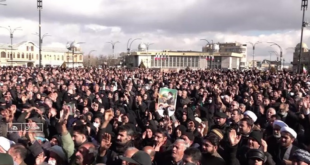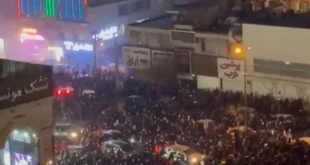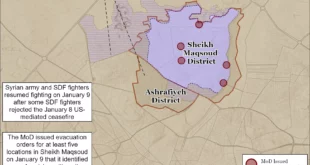GENEVA – The U.N. Human Rights Council on Thursday demanded Israel lift its week-long blockade of Gaza, rebuking the Jewish state for violations in the Palestinian territories for the third time since it was set up in 2006.
The 47-member council adopted a resolution presented by Arab and Muslim states by a vote of 30 states in favor and one against with 15 abstentions, and one delegation absent.
Israeli military attacks on Gaza and the West Bank city of Nablus constituted “grave violations of the human and humanitarian rights” of Palestinian civilians, it said.
But Western countries abstained in bloc after criticizing the text as unbalanced for failing to even mention the rockets launched into Israel from Gaza by Palestinian militants.
Mohammed Abu-Koash, the Palestinian ambassador to the U.N. in Geneva, told the special emergency session called to address conditions in the Palestinian territories that Israel’s siege and raids in Gaza constituted “war crimes”.
“We hope the resolution will trigger international pressure and action to lift the Israeli siege and restore supplies of food, fuel and medicine, open border crossings and end repeated Israeli military attacks throughout the occupied Palestinian territory,” he said.
Israel, facing frequent rocket attacks from the Hamas-ruled Gaza Strip, tightened its border closure last week. It briefly halted fuel delivery to a Gaza power station and cut supplies to petrol stations, and blocked food and other humanitarian aid.
The Israeli army estimates about 250 rockets and mortar rounds have pounded Israel since last week. Israeli troops killed more than 30 Palestinians over the same period.
VIOLENCE
U.N. High Commissioner for Human Rights Louise Arbour, in a speech on Wednesday, denounced Israel’s “disproportionate use of force and targeted killings” as well as the Palestinian militants for firing rockets into Israel.
Arbour, a former U.N. war crimes prosecutor, told the forum that Israel should lift restrictions on aid intended for Gaza.
“All parties concerned should put an end to the vicious spiral of violence before it becomes unstoppable,” she warned.
Delegations from the United States and Israel, which both have observer status, boycotted the two-day special session.
U.S. ambassador Warren Tichenor later issued a statement warning that the Council session and its “one-sided resolution” would only stoke tensions and erode chances for peace.
“The Human Rights Council has far too often been used simply as a platform from which to single out Israel, while too often ignoring the other human rights situations. This unbalanced approach has squandered its credibility,” he said.
Britain, France, Germany and Japan were among countries to abstain. China and Russia backed the resolution while Canada cast the lone vote against it.
Syria’s ambassador Faysal Khabbaz Hamoui, speaking on behalf of Arab states and the Organisation of the Islamic Conference (OIC), accused Israel of turning Gaza into a “huge prison”.
Israel’s envoy Itzhak Levanon, in a statement earlier this week, said: “The main challenge Israel faces is to defend itself from terrorist organizations that use populated areas for cover in order to launch rockets and mortars into Israel.”
The Jewish state, “unlike the Hamas terrorists,” did everything possible to avoid harming civilians, he said.
 Eurasia Press & News
Eurasia Press & News



